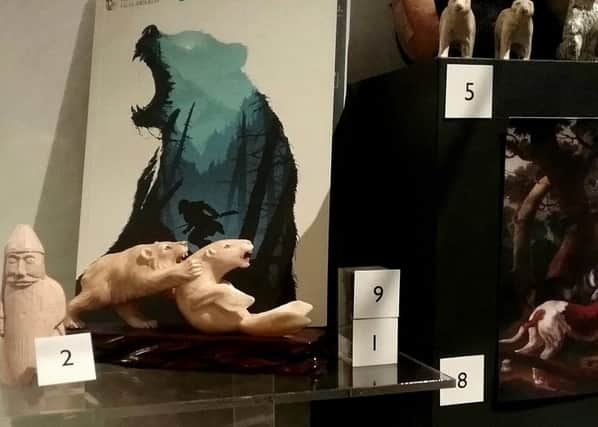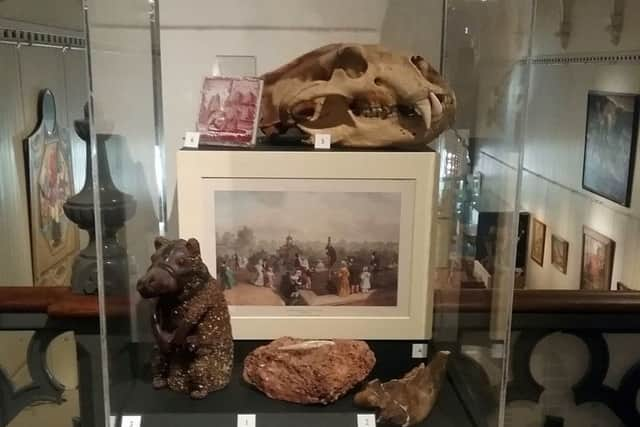REVIEW: Relationship between man and bear on view in Brighton


The misleadingly named The Great Bear exhibition, on until March 17, 2017 at Brighton Museum, is an attempt to bring these admirable honey enthusiasts back into favour.
Curated by Lee Ismail, the display sets out to explore the relationship between bear and man, their natural history and their place in our culture.
Advertisement
Hide AdAdvertisement
Hide AdIn a space as short as a mother bear’s temper, an ambitious goal indeed.


Located on the North Balcony, a few but well chosen exhibits show a timeline of hardships bears have been facing in the shadow of a much more aggressive creature - humans.
The arrangement makes the necessary connections between each item and a pivotal struggle: a tooth of a cave bear that lived in Europe and died out as soon as homo sapiens arrived; a print of a zoo bear, no longer free to roam but poked for the fun of the crowd; a skull of a polar bear, the poster species of a climate change slowly melting their habitat from under their feet.
Other items on display aim to testify to the deep, almost religious awe and respect bears inspired in every culture they shared their home with.
Advertisement
Hide AdAdvertisement
Hide AdYet, this all too small display falls short of demanding more than a passing glimpse from the visitor, leaving room for plenty more to learn but sparking no urgency to do it.
In the scenes of The Revenant, right before DiCaprio’s Hugh Glass has been crudely reminded of the repercussions of intrusion, he was walking through a lush paradise of a forest where bears used to reign supreme.
That, in the face of our relentless progress greedily carving their habitat away, is no longer the case.
Now we clearly need more to remind us to respect a home than a short display on a passage.